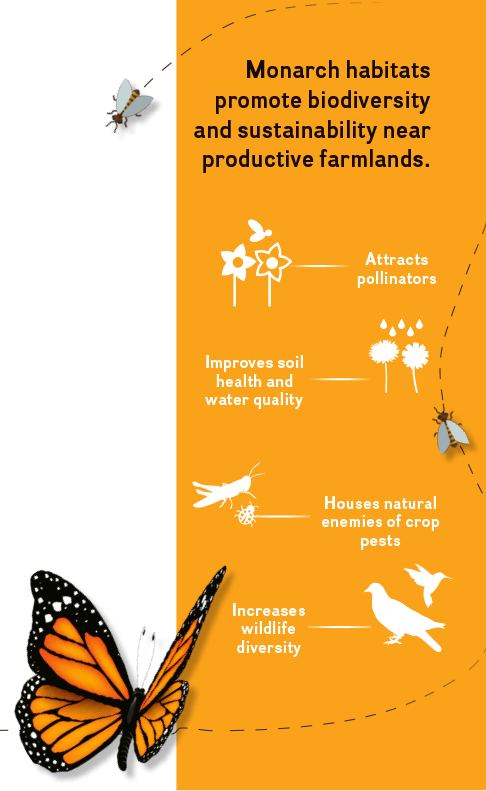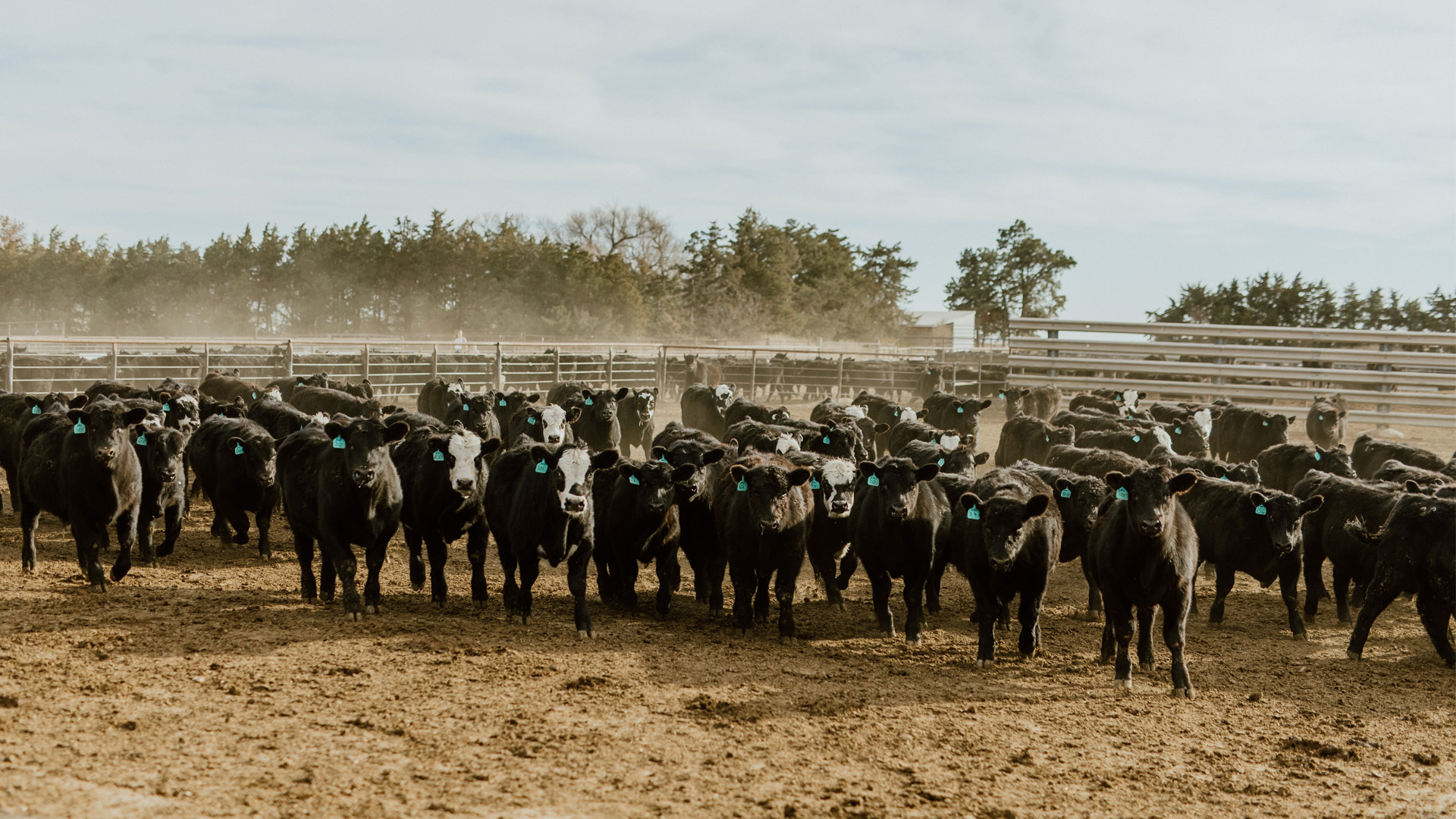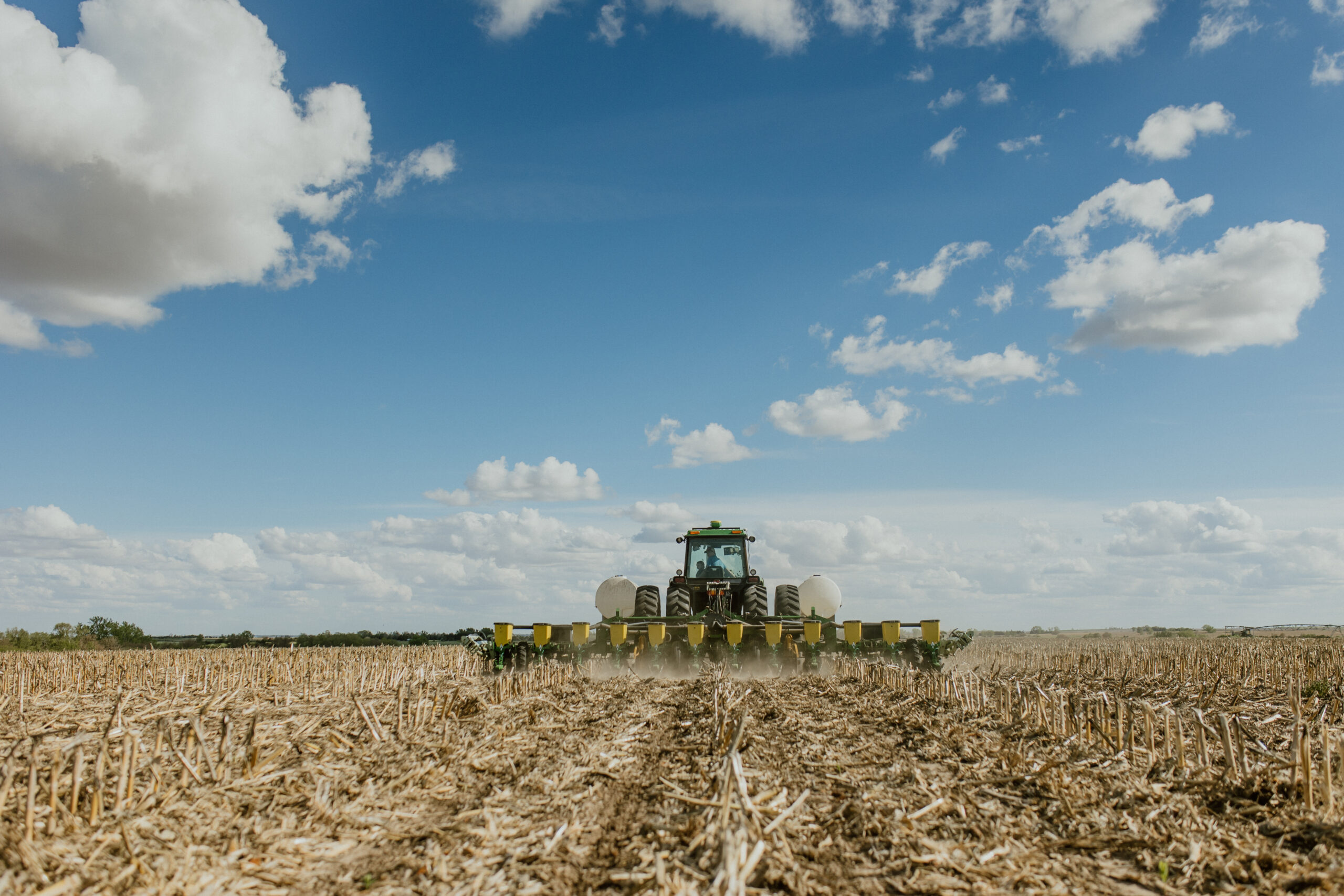Here’s the basic idea:
- Increasing milkweed and nectar plants across rural America can benefit monarch butterflies without inhibiting food and fiber production.
- As stewards of the environment across much of the U.S. heartland, farmers and ranchers are uniquely positioned to support sustainable monarch populations.
- Furthering conservation initiatives that benefit pollinator habitats is in the best interest of agriculture operations.
Here’s what’s being done:
- Landowners and farmers are working to protect, restore and establish native milkweed and other nectar plants
- The Monarch Joint Venture has partnered with the U.S. Fish and Wildlife Service to host a series of webinars about monarch biology, monitoring and conservation.
- Iowa State University hosts an app called HabiTally, which allows users to enter data about conservation efforts on their farms or in their yards – or even in locations like churches or parks where local groups may have created a new monarch habitat.Here’s the basic idea:
- Increasing milkweed and nectar plants across rural America can benefit monarch butterflies without inhibiting food and fiber production.
- As stewards of the environment across much of the U.S. heartland, farmers and ranchers are uniquely positioned to support sustainable monarch populations.
- Furthering conservation initiatives that benefit pollinator habitats is in the best interest of agriculture operations.
Here’s what’s being done:
- Landowners and farmers are working to protect, restore and establish native milkweed and other nectar plants
- The Monarch Joint Venture has partnered with the U.S. Fish and Wildlife Service to host a series of webinars about monarch biology, monitoring and conservation.
- Iowa State University hosts an app called HabiTally, which allows users to enter data about conservation efforts on their farms or in their yards – or even in locations like churches or parks where local groups may have created a new monarch habitat.


Related Posts
A Field of Opportunity: U.S. Carbon Markets Explained
Agricultural carbon markets are a way for corn farmers to combat climate change while potentially unlocking new revenue streams. These markets allow farmers to earn carbon credits using climate-friendly sustainable farming methods—such as no-till [...]




